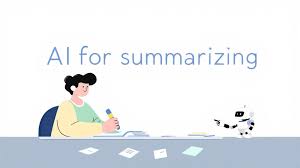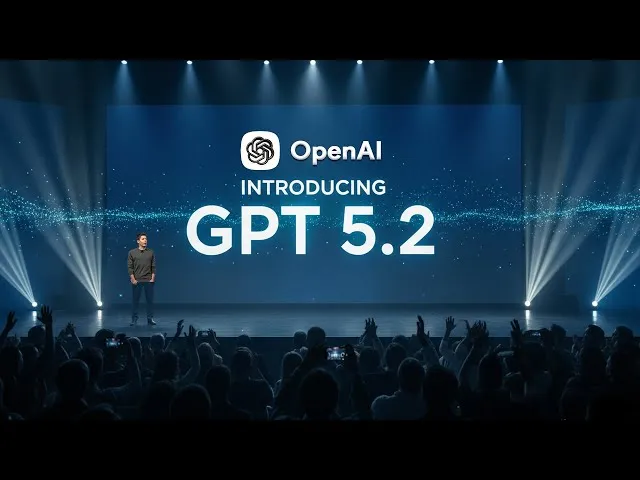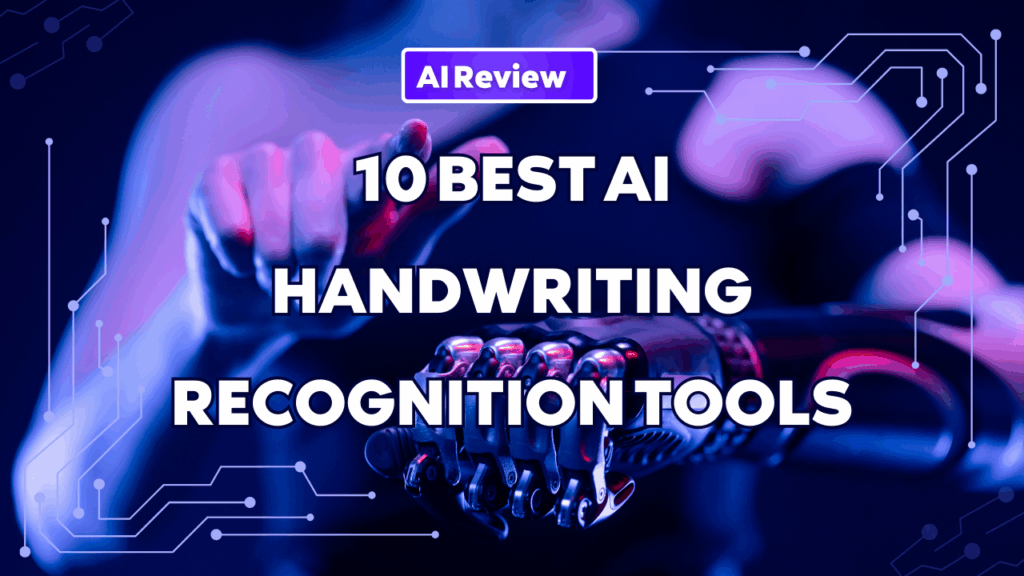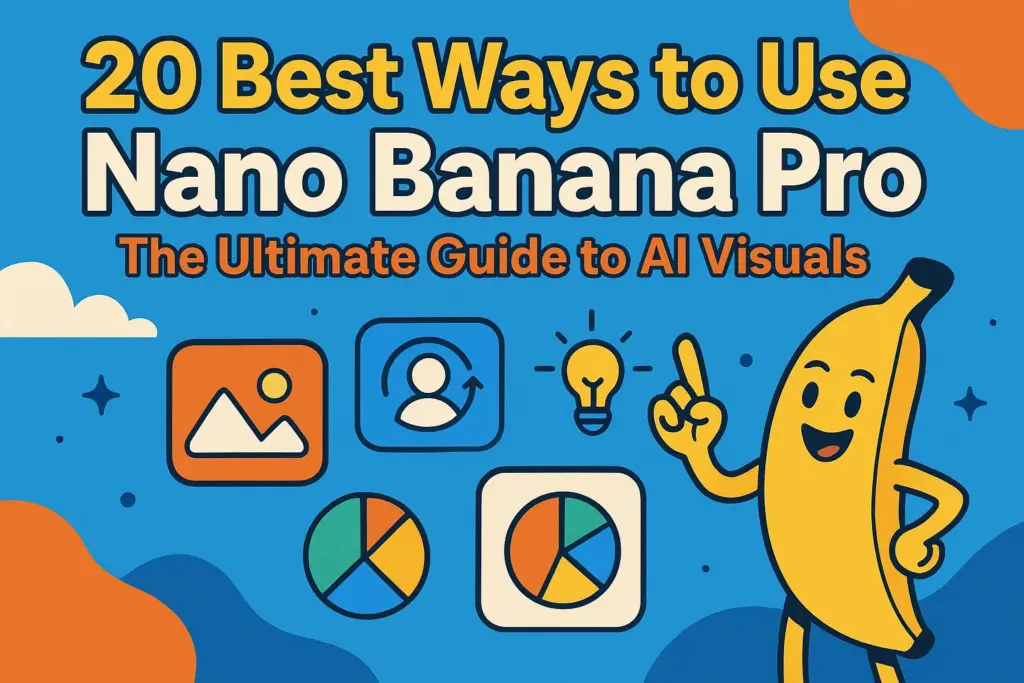In der heutigen schnelllebigen digitalen Welt steigt die Nachfrage nach effizienter Bildanalyse und -zusammenfassung rasant an. Da Unternehmen und Privatpersonen auf KI-Tools setzen, um Aufgaben zu vereinfachen, haben sich Bildzusammenfassungstools als bahnbrechende Neuerung erwiesen. In diesem umfassenden Leitfaden stellen wir die zehn besten Bildzusammenfassungstools des Jahres 2025 vor und analysieren ihre Funktionen, Möglichkeiten und praktischen Einsatzmöglichkeiten.
Was ist Bildzusammenfassung?
Bildzusammenfassung bezeichnet den Prozess, die wichtigsten Informationen aus einem Bild herauszufiltern und in ein prägnanteres, verständlicheres Format zu konvertieren. KI-gestützte Bildzusammenfassungstools analysieren dazu visuelle Inhalte, erkennen Objekte und liefern zusammengefasste Erkenntnisse. Diese sind besonders nützlich für Unternehmen, Content-Ersteller und Forscher, die mit großen Bildmengen arbeiten.
Warum sind Tools zur Bildzusammenfassung wichtig?
- Effiziente InformationsverarbeitungAngesichts der großen Bilderflut im Internet ist es wichtig, wichtige Inhalte schnell zu identifizieren. Tools zur Bildzusammenfassung helfen, Zeit zu sparen, indem sie relevante Daten hervorheben.
- Automatisierung: Diese Tools automatisieren Aufgaben wie die Inhaltsmoderation, verbessern die Effizienz und reduzieren menschliche Fehler.
- Verbesserte Benutzererfahrung: Durch die Bereitstellung sofortiger Bildzusammenfassungen können Benutzer einfacher in riesigen Bilddatenbanken navigieren, was zu einem nahtlosen digitalen Erlebnis führt.
1. Google Vision AI
Googles Vision AI ist weiterhin führend in diesem Bereich und bietet robuste Bildanalysefunktionen wie Objekterkennung, Beschriftungserkennung und Texterkennung. Mithilfe der vortrainierten Modelle von Google können Sie aus verschiedenen Bildern nützliche Zusammenfassungen extrahieren.
Hauptmerkmale:
- Beschriftung von Bildinhalten
- OCR (Optische Zeichenerkennung)
- Anpassbare Bildmodelle
Vorteile:
- Hohe Genauigkeit
- Vielseitige Funktionen
Nachteile:
- Erfordert Cloud-Infrastruktur
2. Clarifai
Clarifai bietet leistungsstarke Machine-Learning-Tools zur Bilderkennung und -zusammenfassung. Bekannt für seine KI-gesteuerten Lösungen, hilft es Anwendern, Bilddaten präzise zusammenzufassen.
Hauptmerkmale:
- KI-Modelle für verschiedene Branchen (Mode, Gesundheit usw.)
- Echtzeitanalyse
- Mehrsprachige Unterstützung
Vorteile:
- Benutzerfreundliche Oberfläche
- Mehrere branchenspezifische Modelle
Nachteile:
- Teuer für kleine Unternehmen
3. Amazon Rekognition
Amazon Rekognition eignet sich hervorragend für die Analyse von Bildern und Videos. Mit seinem Bildzusammenfassungstool identifiziert es Objekte, Szenen und Aktivitäten in Bildern und eignet sich somit ideal für die Automatisierung der Inhaltsmoderation.
Hauptmerkmale:
- Gesichtserkennung
- Text- und Objekterkennung
- Echtzeit-Bildanalyse
Vorteile:
- Nahtlose Integration in das AWS-Ökosystem
- Skalierbar für große Unternehmen
Nachteile:
- Datenschutzbedenken hinsichtlich der Gesichtserkennung
4. IBM Watson Visuelle Erkennung
IBM Watson ist ein leistungsstarkes KI-Tool, das eine detaillierte Bilderkennung und -zusammenfassung ermöglicht. Es bietet branchenspezifische Modelle, die Nutzern helfen, Bilder schnell zu kategorisieren und zusammenzufassen.
Hauptmerkmale:
- Anpassbare Trainingsmodelle
- Bildeinblicke in Echtzeit
- Integration mit Watson Studio
Vorteile:
- Tiefgehende Analyse
- Zuverlässig in verschiedenen Branchen
Nachteile:
- Erfordert technisches Fachwissen
5. Microsoft Azure Computer Vision
Microsofts Azure Computer Vision ist bekannt für seine umfangreichen Tools zur präzisen Analyse und Zusammenfassung von Bildinhalten. Es eignet sich besonders gut für große Datensätze und ist daher ideal für Unternehmen.
Hauptmerkmale:
- Objekterkennung
- Text- und Handschrifterkennung
- Livebildzusammenfassung
Vorteile:
- Hohe Genauigkeit
- Schnelle Verarbeitungsgeschwindigkeiten
Nachteile:
- Kann ressourcenintensiv sein
6. DeepAI-Bilderkennung
DeepAI bietet ein Open-Source-Bilderkennungstool, das mithilfe künstlicher Intelligenz automatisch Bildzusammenfassungen erstellt. DeepAI ist für seine Flexibilität bekannt und ermöglicht es Nutzern, die KI-Modelle an spezifische Anwendungsfälle anzupassen.
Hauptmerkmale:
- Kostenlose Nutzung mit einer API
- Anpassbare Modelle
- Hochwertige Bildanalyse
Vorteile:
- Open-Source-Verfügbarkeit
- Skalierbar
Nachteile:
- Beschränkt auf bestimmte Modelltypen
7. Vize.ai
Vize.ai ist eine weitere KI-basierte Plattform, die einen robusten Bildzusammenfassungsdienst bietet. Durch den Einsatz von Deep-Learning-Algorithmen unterstützt sie Unternehmen dabei, Bildinhalte effektiv zu erkennen und zusammenzufassen.
Hauptmerkmale:
- Anpassbare Bildmodelle
- Automatisiertes Tagging und Kategorisierung
- Großflächige Bildanalyse
Vorteile:
- Maßgeschneiderte Modelle für Unternehmen
- Benutzerfreundliche Oberfläche
Nachteile:
- Langsamere Verarbeitungsgeschwindigkeit im Vergleich zur Konkurrenz
8. Picpurify
Picpurify ist eine Plattform zur Inhaltsmoderation und Bildzusammenfassung mit Echtzeitanalysen. Dieses Tool ist besonders für Unternehmen nützlich, die nutzergenerierte Inhalte verwalten.
Hauptmerkmale:
- Inhaltsmoderation
- Tagging und Kategorisierung
- Einblicke in Echtzeit
Vorteile:
- Nützlich für Social-Media-Plattformen
- Schnelle Reaktionszeit
Nachteile:
- Konzentriert sich primär auf Moderation, nicht auf allgemeine Zusammenfassungen
9. Tiefe Sicht
Deep Vision ist ein KI-Tool, das auf visuelle Erkennung und Zusammenfassung spezialisiert ist. Dank seiner Deep-Learning-Fähigkeiten liefert es detaillierte Zusammenfassungen von Bildern, die in verschiedenen Bereichen, darunter Gesundheitswesen und Sicherheit, eingesetzt werden.
Hauptmerkmale:
- Gesichtserkennung
- Detaillierte Objektkategorisierung
- Anpassbare Analyse
Vorteile:
- Hohe Präzision
- Unterstützt verschiedene Branchen
Nachteile:
- Hoher Rechenaufwand
10. iWeaver
iWeaver ist ein aufstrebendes KI-Tool zur Bildzusammenfassung. Es konzentriert sich darauf, komplexe Bilddaten zu vereinfachen und für Laien zugänglich zu machen. Ideal für Forscher und Kreative, die schnelle Zusammenfassungen benötigen.
Hauptmerkmale:
- Benutzerfreundliche Oberfläche
- Benutzerdefinierte Bildfilterung
- Schnelle Zusammenfassung
Vorteile:
- Kostenlose Version verfügbar
- Einfache Integration
Nachteile:
- Eingeschränkte erweiterte Funktionen in der kostenlosen Version
FAQs
- Was ist ein Bildzusammenfasser? Ein Bildzusammenfasser ist ein KI-Tool, das wichtige Informationen aus Bildern extrahiert und eine zusammengefasste Version des visuellen Inhalts bereitstellt.
- Wie genau sind diese Tools? Die meisten dieser Tools sind sehr genau, die Genauigkeit kann jedoch je nach Komplexität des Bildes und den Trainingsdaten des KI-Modells variieren.
- Kann ich diese Tools kostenlos nutzen? Einige Tools wie iWeaver bieten kostenlose Versionen mit grundlegenden Funktionen, während bei anderen für den vollständigen Zugriff ein Abonnement erforderlich ist.
- Welches Tool eignet sich am besten für große Unternehmen? Amazon Rekognition und Microsoft Azure eignen sich aufgrund ihrer Skalierbarkeit ideal für groß angelegte Operationen.
- Können diese Tools angepasst werden? Ja, viele dieser Tools bieten Anpassungsoptionen für bestimmte Branchen und Anforderungen.




